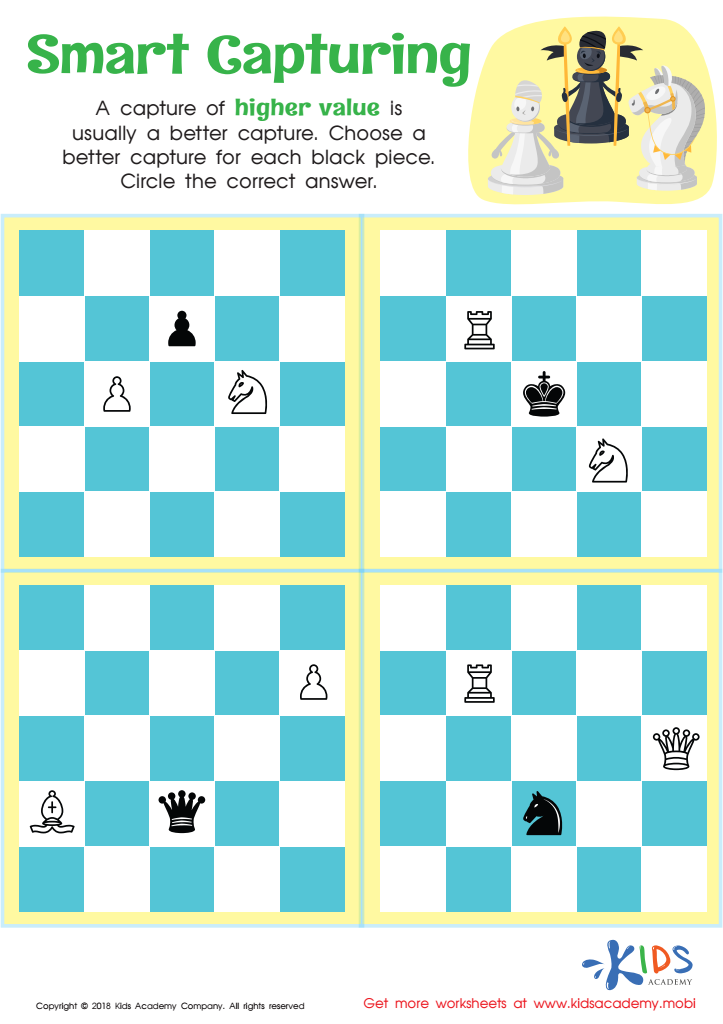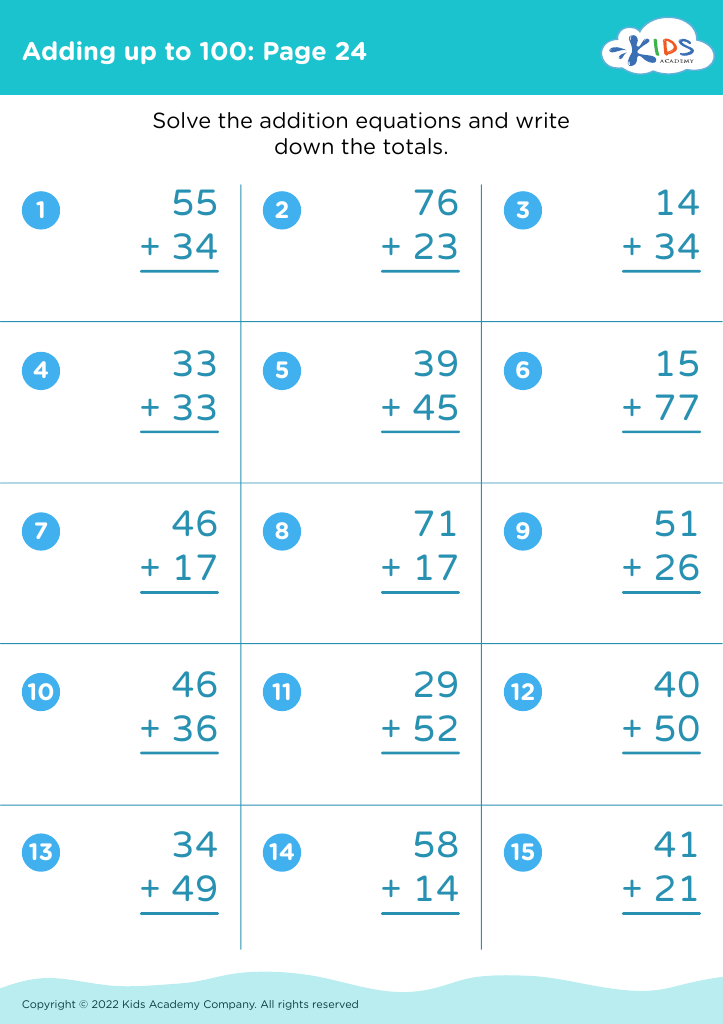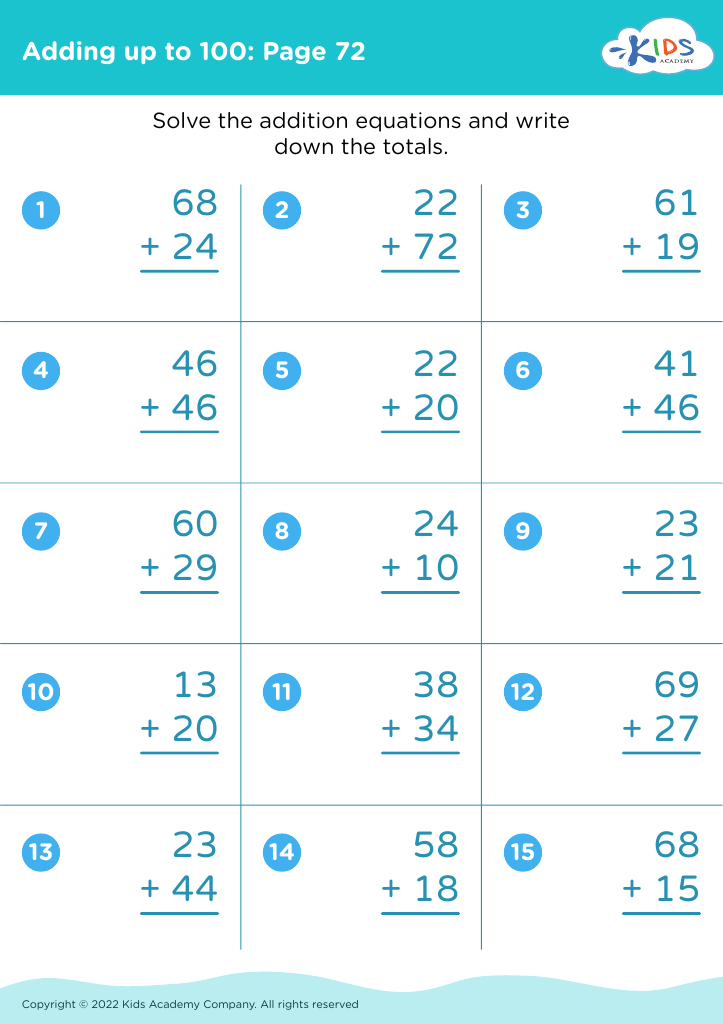Encourage attention to detail Worksheets for 7-Year-Olds
3 filtered results
-
From - To
Enhance your 7-year-old's focus and precision with our engaging Attention to Detail Worksheets. Designed to develop critical observation skills, these worksheets challenge young learners to identify differences, complete patterns, and analyze visuals. By honing their attention to detail, children learn to approach problems methodically and boost their cognitive abilities. Our worksheets are colorful and interactive, making learning fun and effective. Perfect for home or classroom use, they support a range of learning styles and promote confidence in young thinkers. Explore our collection and help your child cultivate essential skills that will benefit their academic journey and beyond!


Smart Capturing Worksheet
Encouraging attention to detail in 7-year-olds is crucial for their holistic development, as it lays the foundation for critical thinking and problem-solving skills. At this age, children are naturally curious and eager to learn, making it an ideal time to instill this habit. Focusing on the small elements in tasks enhances their ability to observe, process information, and understand complex concepts.
Moreover, attention to detail fosters academic success. Many subjects, such as math and language arts, require precision and accuracy for effective learning. By cultivating this skill, teachers and parents help children improve their performance, reduce mistakes, and boost confidence.
Socially and emotionally, paying attention to detail nurtures empathy and understanding. Children who notice subtleties in social cues are better equipped to navigate relationships. This skill also promotes mindfulness, encouraging them to engage fully in their surroundings, which can reduce anxiety and enhance overall well-being.
In a rapidly changing world filled with information, the ability to focus on details is increasingly valuable. By nurturing this trait early on, parents and teachers equip children with essential skills for lifelong learning and success, ensuring they are prepared for future challenges.

 Assign to My Students
Assign to My Students

















